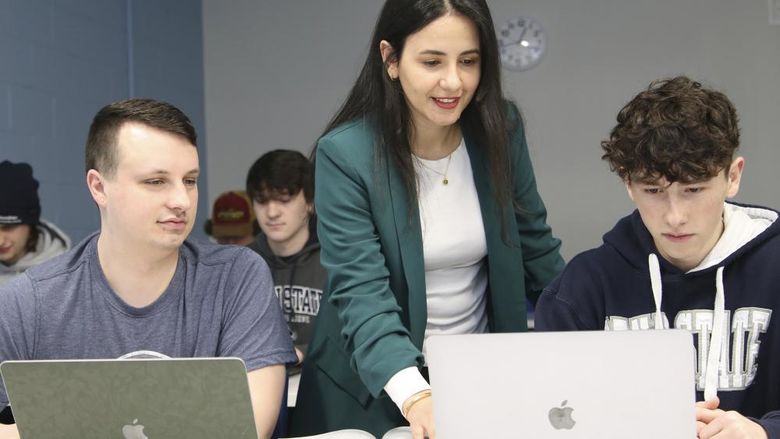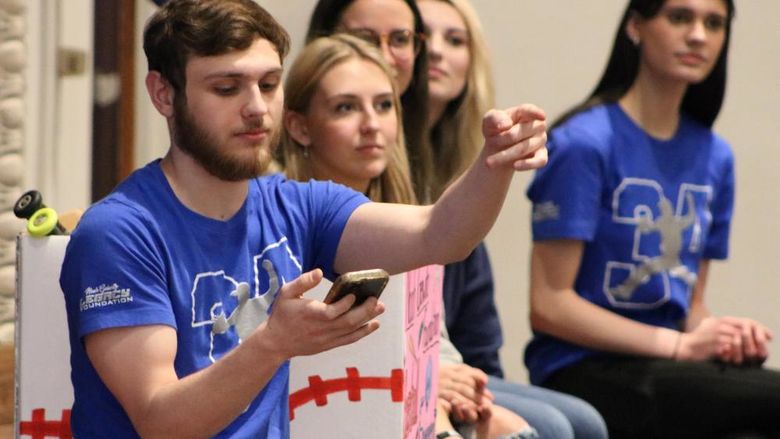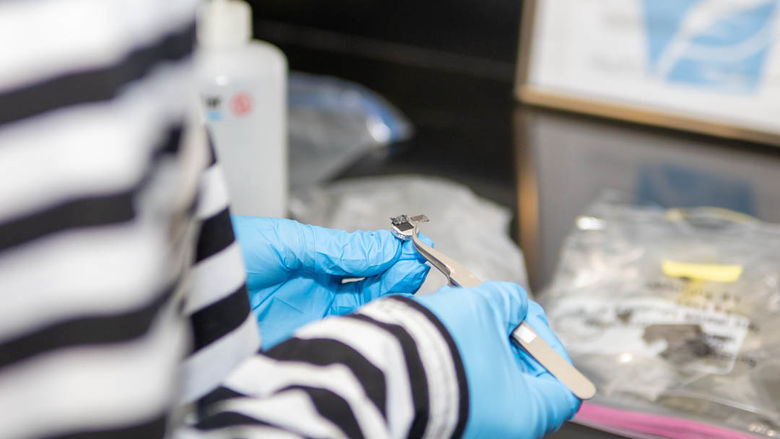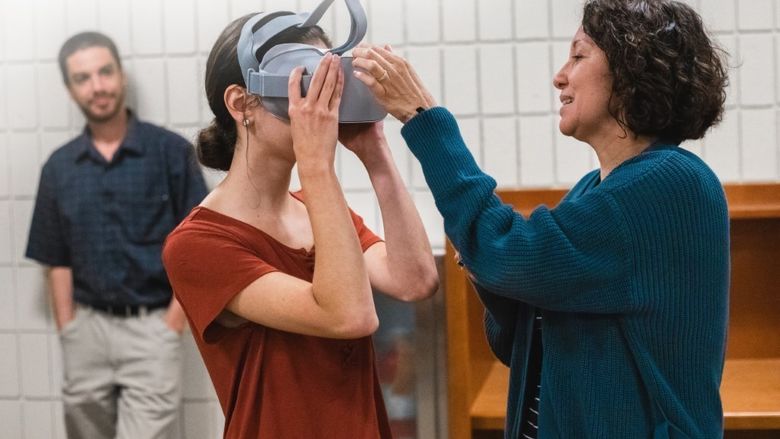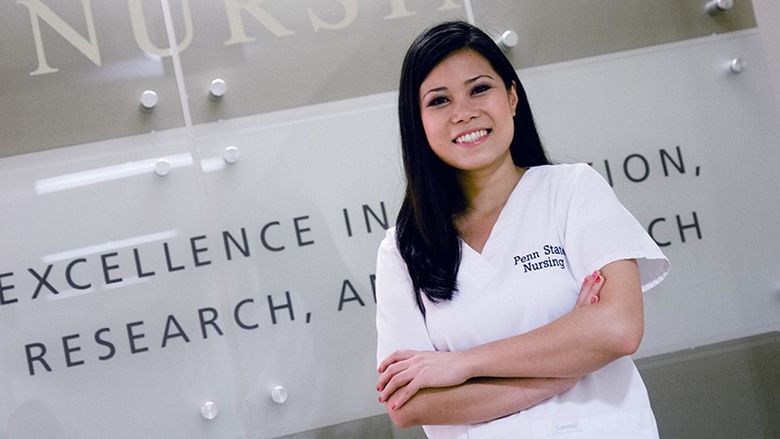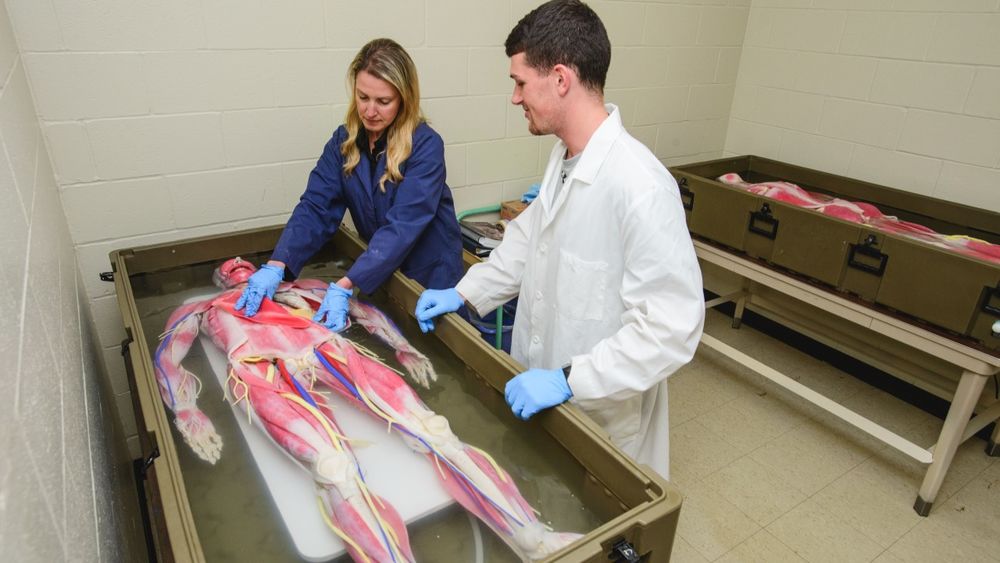
Andrew Jones, a Penn State Behrend nursing student, checks out the Shenango campus' new SynDaver with Dr. Diane Kuharsky, instructor in biology, over the summer semester.
SHARON, Pa. — From sixth grade STEAM campers to high school college visitors, each semester, Penn State Shenango welcomes these and other students to see what is unique and special about the downtown Sharon campus. While students get to see and participate in many events that Shenango has to offer, nothing gets more attention than the campus’ biology lab and its two SynDaver assistants, “Ana” and “Tomy.”
SynDavers, or “synthetic cadavers,” are artificial human bodies that very closely replicate a real human body in both structure and touch. Their tissue is so real that it must be kept submerged in fluid to reduce deterioration.
“SynDavers are used in higher education to give students the most authentic feel and look to a real cadaver,” said Dr. Diane Kuharsky, instructor in biology. “Our first SynDaver, Synthia, as we referred to her, was bought in 2014. She was utilized a lot by our students, and her tissue started to deteriorate, so it was time to purchase a new model. We decided it would be beneficial for our students to obtain both a male and female SynDaver, especially for our anatomy students, hence 'Ana’ and ‘Tomy.’”
According to Kuharsky, the current SynDavers are sturdier and more durable than the prior model. The circulation pumps, which are located in the storage tanks to circulate the water and algaecide more evenly throughout the tank, are also new to the system.
“I’m thrilled with our SynDavers,” said Kuharsky. “The new models have more muscles and are attached more accurately according to the origin and insertion.”
Although no pedagogical study has ever been completed, Kuharsky believes that her students are more easily retaining the wealth of information they need based on their performance in her upper level classes.
“The acquisition of our first SynDaver, and then our most recent male and female SynDavers, was to enhance student learning, especially for those undergrads who are pursuing health-related programs,” said Kuharsky. “They provide our students with better scale in terms of muscle linkage, texture, position, and size of organs.”
Shenango’s current SynDavers, which were purchased from the same company as the previous model, SynDaver Labs, arrived vacuum-sealed in a bag containing a special storage solution. Synthia, the first SynDaver, was dried out and sent back to Tampa Florida where it was properly disposed of by the company.
The campus also purchased two stainless steel gurneys that help make moving the models to different areas of the lab easier and reduce stress to the models, as well as a Hoyer lift with a mesh sling, which allows the SynDavers to be safely lifted from the tank and drained before being placed onto the gurneys.
While Kuharsky acknowledges that she and other Shenango professors continue to utilize smaller organs from animals, such as pig kidneys, sheep brains, and cow eyes, for dissection, the larger organs in the SynDavers have more detailed structure for teaching.
Because the SynDavers’ synthetic human tissues mimic a real human’s tissue, open wounds can present ideal conditions for microbial growth. Therefore, the first item of business when any student or visitor wants to see or touch the SynDavers is to put on surgical gloves.
“Since they arrived, the new SynDavers have been getting a lot of use from our current students,” said Kuharsky. “We’ve also had a lot of interest from the younger students who have come to our campus for STEAM and STEM camps, as well as a large group of Girl Scouts. We love showing ‘Ana’ and ‘Tomy’ off, but we are very careful to make sure anyone who comes in contact with them wears gloves and is gentle when touching the models, so that we will have them for several years.”
For more information about the Penn State Shenango SynDavers, contact Dr. Diane Kuharsky at 724-983-2967. To speak to someone about a degree in one of Penn State Shenango’s health-related programs, contact the Admissions Office at 724-983-2803.
